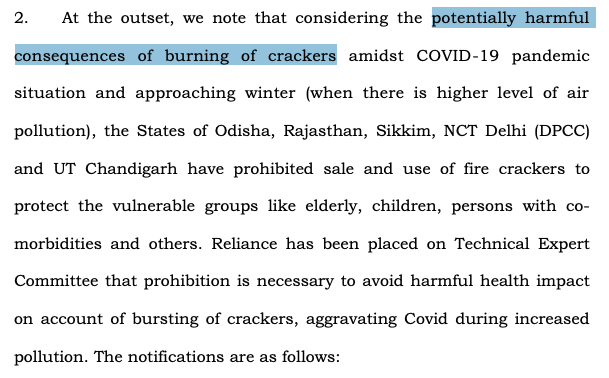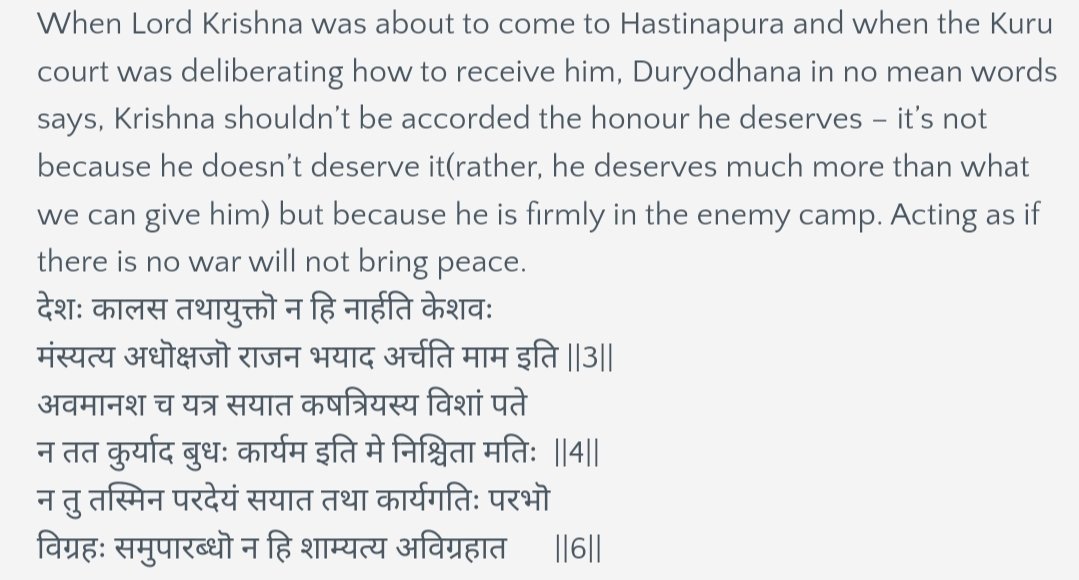
A readup of @D_Roopa_IPS's scintillating piece on Diwali. I get this. 

The dichotomy. You can meet people but not burst crackers. If the reason cited is COVID, we would have expected a reverse because Bangalore burning didn't have much impact on COVID numbers. 

I like this word. "Popular Government". By the way, Bangalore Riots happened where BJP didn't win, right? Anyways. Do we know the share of crackers in Bangalore pollution as a percentage of vehicle and factory emissions? 



I am confused. We know Indians knew Gunpowder. We know they didn't use it as a weapon. We know they didn't use it for crackers. So, what exactly did they use it for? 

Even in cities like Delhi where there is a total ban, people bursted crackers. When crores are ready for Contempt of Court, it means people's will is at odds with that of those "popular governments". Either bend the crores or change the law. We can't have those many breaking law. 

Law says a person is deemed innocent unless proven guilty. But here, we are saying let's arrest that random guy on the road because he may commit a crime. 

There is a reason for that perception. An example. How many of these people are taken into custody for violating social distancing norms?

https://twitter.com/INCBangaloreSo1/status/1262940130698018816

Synopsis: I am more confused at the stand the author took. Is it ban or boycott? Is it COVID or pollution? What exactly does the author want?
• • •
Missing some Tweet in this thread? You can try to
force a refresh











